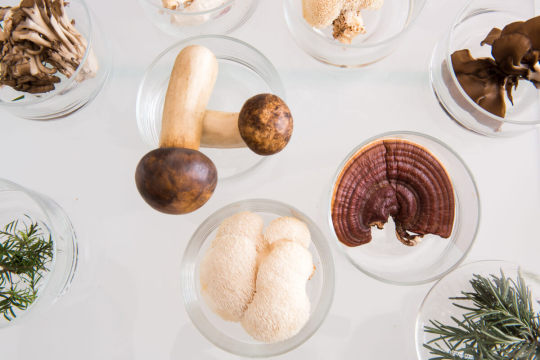#holisticmedicine
Text
Medicinal Plant Extracts Market Boom (April 2024): Exploring Top Regions - India, China, South Korea & Japan
Exploring the Medicinal Plant Extracts Market in 2024: Delve into regional trends in India, China, South Korea & Japan. Discover market size, growth forecasts, key players & future outlook for natural plant-based remedies. (April 2024 Update)
The Booming World of Medicinal Plant Extracts: A Regional Exploration (April 2024)
The Medicinal Plant Extracts Market is experiencing significant growth globally, driven by a rising interest in natural remedies and increasing consumer awareness about the potential health benefits of plant-based products. These extracts, derived from various botanical sources, are used in a wide range of…

View On WordPress
#BotanicalExtracts#ClinicalTrialsforNature#EvidenceBasedAlternatives#FunctionalFoods#FutureofHealthcare.#GlobalWellnessMarket#HolisticMedicine#NaturalHealthRevolution#PlantBasedWellness#SustainableSourcing
0 notes
Text
What are the Benefits of Spearmint Leaves & How to Use?
Introducing the blog post on the Vinatura website! This article delves into the incredible potential of spearmint leaf as a versatile herb with wide-ranging medicinal benefits.
Used for centuries in Ayurveda, this fast-growing herb is rich in essential oils and minerals. Join us as we uncover the various therapeutic properties of spearmint leaf and explore its potential impact on overall health.
Stay tuned for a comprehensive understanding of this remarkable compound, including its medical properties and possible side effects. Don't miss out on enriching your health regimen with the natural goodness of spearmint leaf!
#spearmintleaf#medicinalbenefits#herbalremedies#naturalhealing#holisticmedicine#herbalmedicine#alternativehealth#healthybenefits#herbaltea#antioxidants#detoxification#digestivehealth#antiinflammatory#immunesupport#anxietyrelief#headacheremedy#hormonalbalance#mentalclarity#antimicrobial#herbalremedy"
0 notes
Text
Doctors of The Future
"The doctor of the future will give no medicine, but will interest his patients in the care of the human frame, in diet, and in the cause and prevention of disease." - Thomas Edison
The true future of medicine does not rely on pharmaceuticals and synthetic medications. Instead, we revert to our ancestral healing practices, of healing our mind, body, and spirits. We will tune into our body's natural healing abilities through food medicine, which is simply learning how to eat for nourishment, how to eat to boost your defenses and immune system, how to eat for natural energy, how to eat to provide your body with the ability to naturally fight and detox pathogens, carcinogens, and toxins from our bodies.
When we help individuals learn how to tune into the earth around them to heal themselves, we will be able to return to natural medicine. Where we become one with nature, the earth in its most natural state produces everything we need to function at 100% capacity. However, due to genetic modifications of our foods, our soils and water are contaminated by chemicals, and the food that we eat can no longer heal us as it was naturally designed to.
This can be found based on the genetics of individuals born in certain areas, the types of foods that are native to that space, will inherently contain all the minerals, nutrients, and proteins individuals of that area need to survive. This is why when we tend to travel to other countries and eat what is perceived to be the same kind of item we would eat where we come from, it may look, taste, and feel different. That is because although it is the same "Fruit or Vegetable" the environment is different, meaning the water it is exposed to, the soil composition is different, and the weather is different. All of these things directly have an impact on the quality of the food. Which may produce more or less natural minerals, proteins, nutrients, and vitamins.
Have you ever wondered why the argument in the United States is that we eat too many carbs which is why we are all obese with health conditions, even people who have a mostly vegetarian or vegan diet in the US have all sorts of chronic health issues. The food of our country is predominantly preservatives, synthetic chemicals, and processed sugars, with little to no nutritious value. But you go to other countries, and see how they eat, and their population is significantly healthier than ours, even though their diet consists of more "carbs, alcohol, and meat" than other places. It is because it is not the food itself, it is the quality of the food and lifestyle.
If you were to go to another country and attempt to maintain the same diet, you would notice a few things immediately, you will not be as bloated, you will not feel as tired, women might suffer fewer complications with their periods, the taste will be better, and most of the foods that we eat in the US is actually banned in other nations because it is deemed poison.
Holistic Medicine is incorporated as essential medicine in other countries around the world. They understand the vital importance of taking care of the whole body, feeding it right, releasing and relieving stress, and the importance of mental health.
It is about time, that we as a people become more intentional about demanding more. They want us to dedicate 80 years of our lives to working because the life expectancy is increasing, then maybe they should make the quality of life more bearable and people wouldn't be so opposed to the idea.
Treat your people right, and they will treat you better!
#healthandwellness#naturalhealth#mindbodyspirit#intentional living#naturalremedies#alternativemedicine#holisticwellness#HolisticPractitioners#holisticmedicine#healingtogether#communityhealth#community support#educationmatters#preventivecare#Preventativemedicine#holistichealth#naturalhealing#RootCauseHealing
1 note
·
View note
Link
The Home Doctor: Your Guide to Holistic Health
0 notes
Photo

(via Book of the week: 'A Peek into a Rabbit Hole, Part 1' by Natasa Blisk)
#natasablisk#apeekintoarabbitholepart1#books#booknews#bookoftheweek#altlifeworld#alternativemedicine#atlasology#ebooks#holisticmedicine#nature#naturopathy#fiverr#fiverrgig#fiverrseller
0 notes
Text

Turmeric & Ginger Soup
Benefits:
Anti-inflammatory properties, aids digestion, and boosts immunity.
Ingredients:
2 tablespoons olive oil
1 onion, chopped
2 cloves garlic, minced
1 tablespoon fresh ginger, grated
1 teaspoon turmeric powder
4 cups vegetable broth
2 cups chopped carrots
Salt & pepper to taste
Fresh cilantro for garnish
Instructions:
In a pot, heat olive oil and sauté onions until translucent.
Add garlic, ginger, and turmeric. Stir for a minute.
Add vegetable broth and carrots.
Simmer until carrots are tender.
Season with salt and pepper. Garnish with fresh cilantro.
#FunctionalMedicine#FunctionalMedicineNearMe#FunctionalMedicineDoctor#Florida#MelbourneFlorida#FunctionalMedicineDoctorFlorida#AlternativeMedicineFlorida#HolisticDoctor#HolisticMedicine#HolisticDoctorFlorida#HolisticDoctorNearMe#BestFunctionalMedicine
0 notes
Text
Medicinal Mushrooms and Their Role in Cancer Care

Medicinal mushrooms have gained significant attention in recent years due to their potential benefits for individuals with cancer. While it's important to note that medicinal mushrooms should not replace conventional cancer treatments, they may provide certain advantages and support. Here are some potential benefits associated with medicinal mushrooms:
Immune system support: Certain medicinal mushrooms, such as reishi (Ganoderma lucidum), maitake (Grifola frondosa), and turkey tail (Trametes versicolor), contain compounds that can enhance immune function. These mushrooms can stimulate the activity of immune cells, such as natural killer cells and macrophages, which plays a crucial role in identifying and eliminating cancer cells.
Anti-inflammatory properties: Chronic inflammation is often associated with cancer progression. Some mushrooms, like shiitake (Lentinula edodes) and cordyceps (Cordyceps sinensis), possess anti-inflammatory properties. By reducing inflammation, these mushrooms may help create a less favorable environment for cancer cells to thrive.
Antioxidant effects: Many medicinal mushrooms are rich in antioxidants, such as polyphenols and beta-glucans. Antioxidants can neutralize free radicals in the body, which can damage cells and DNA and contribute to the development of cancer. By reducing oxidative stress, mushrooms can help protect healthy cells from damage.
Chemopreventive potential: Some medicinal mushrooms exhibit chemopreventive properties, meaning they may help prevent the development of cancer or inhibit its progression. For example, mushrooms like agaricus blazei and maitake have been studied for their potential to inhibit tumor growth and prevent metastasis in various types of cancer.
Supportive effects during treatment: Medicinal mushrooms can offer supportive benefits for individuals undergoing cancer treatments, such as chemotherapy and radiation therapy. They may help alleviate side effects like nausea, fatigue, and weakened immune function, thus improving one’s overall well-being.
It's important to emphasize that while medicinal mushrooms have shown promise in clinical trials, further research is needed to fully understand their efficacy, optimal dosages, and potential interactions with other medications. If you're considering using medicinal mushrooms as part of your treatment plan, it's essential to consult with a healthcare professional experienced in integrative oncology to ensure safe and appropriate use. Medicinal mushrooms are containdicated in certain cancers and there are several factors to consider:
Safety and Quality: Ensure that the medicinal mushrooms you plan to use are from a reputable source and have undergone quality testing. This can help ensure the product is free from contaminants and is properly labeled. It's also important to note that some wild mushrooms can be toxic, so caution should be exercised if harvesting mushrooms yourself.
Individualized Approach: Each person's cancer and treatment plan are unique. What works for one individual may not be appropriate for another. It's important to consult with an integrative oncology healthcare professional who can consider your specific situation, medical history, and treatment plan when recommending or discussing the use of medicinal mushrooms.
Scientific Evidence: While there is growing scientific interest in medicinal mushrooms, the research is still evolving. It's important to have realistic expectations and recognize that medicinal mushrooms should not replace conventional cancer treatments.
Potential Side Effects: While medicinal mushrooms are generally considered safe for most people, they can still cause side effects in some individuals. These may include gastrointestinal symptoms like nausea, diarrhea, or upset stomach. Allergic reactions are also possible, especially if you have a known allergy to mushrooms. Monitor your body's response to any supplements and discuss any concerns or side effects with your healthcare team.
Dosage and Formulation: Determining the appropriate dosage and formulation of medicinal mushrooms can be challenging, as research is still ongoing. Different mushrooms and products may have varying concentrations of active compounds. It's important to follow the recommended dosage instructions provided by the manufacturer or as advised by a knowledgeable healthcare professional.
Always remember that medicinal mushrooms should be seen as an integrative approach and not a substitute for conventional cancer treatments. It's crucial to have open and honest communication with your healthcare team, inform them of all the supplements you are considering, and seek their guidance to ensure your safety in your overall treatment plan.
#cancer#immunity#medicinalmushrooms#mushrooms#chemotherapy#radiation#oncology#integrativeoncology#EastWestIntegrativeOncology#naturalmedicine#holisticmedicine#yourcancerguru#breastcancer#lungcancer#prostatecancer#pancreaticcancer#colorectalcancer#radiationtherapy#immunotherapy
0 notes
Photo

Dragonfly Aromatherapy Diffuser Multi Symptom Anxiety Bracelet-Add Your Favorite Scent-Diffuser Snap Jewelry Locket-Check Out Our Selection💞 AcuBracelet.com . . . . . #aromatherapy #ayurveda #detox #energy #essentialoils #healing #healthandwellness #healthcoach #holistic #holisticeducation #holistichealer #holistichealing #holistichealth #holistichealthcoach #holisticlife #holisticlifestyle #holisticliving #holisticmedicine #holisticpregnancy #holisticpsychology #holistictherapist #holistictherapy #holisticwellbeing #holisticwellness #meditation #mentalhealth #momlife #naturalhealing #organic #plantbased https://www.instagram.com/p/ClRRbaoJBuD/?igshid=NGJjMDIxMWI=
#aromatherapy#ayurveda#detox#energy#essentialoils#healing#healthandwellness#healthcoach#holistic#holisticeducation#holistichealer#holistichealing#holistichealth#holistichealthcoach#holisticlife#holisticlifestyle#holisticliving#holisticmedicine#holisticpregnancy#holisticpsychology#holistictherapist#holistictherapy#holisticwellbeing#holisticwellness#meditation#mentalhealth#momlife#naturalhealing#organic#plantbased
0 notes
Text
Minority Communities are Disproportionately Affected By A Lack Of Sleep
Sleep is essential for overall health and well-being. It plays a critical role in physical, mental, and emotional functioning, contributing to immune function, cognitive performance, mood regulation, and stress management. Quality sleep is linked to lower risks of chronic diseases, such as heart disease, diabetes, obesity, and mental health disorders.
?? Did You Know??
Unfortunately, minority communities often face disparities in sleep health due to various social stress factors. Economic inequalities, housing instability, discrimination, neighborhood violence, and limited access to healthcare contribute to heightened levels of stress and anxiety, which can disrupt sleep patterns and lead to sleep disorders, such as insomnia, sleep apnea, and restless leg syndrome.
The inability to obtain sufficient, restorative sleep has profound implications for health outcomes within minority communities. Chronic sleep deprivation is associated with an increased risk of obesity, hypertension, cardiovascular disease, type 2 diabetes, depression, and anxiety disorders—conditions that disproportionately affect minority populations. Additionally, sleep disturbances can exacerbate existing health disparities and contribute to poorer overall health outcomes.
Here are some statistics regarding the impact of lack of sleep on minority communities:
- According to the Centers for Disease Control and Prevention (CDC), non-Hispanic Black adults are more likely to report short sleep duration (less than 7 hours per night) compared to non-Hispanic white adults. In one study, 54.2% of Black adults reported short sleep duration, compared to 33.4% of white adults.
- Sleep apnea, a sleep disorder characterized by pauses in breathing during sleep, disproportionately affects minority populations. Research suggests that African Americans are more likely to experience obstructive sleep apnea compared to white Americans. According to the American Academy of Sleep Medicine, African Americans have a higher prevalence of obstructive sleep apnea, and Hispanic/Latino Americans have a higher prevalence of central sleep apnea.
- Sleep disparities also have significant implications for mental health. Research has shown that minority individuals are more likely to experience sleep disturbances, such as insomnia, and are at a higher risk of developing mood disorders, such as depression and anxiety, as a result of poor sleep quality.
- Social stress factors, such as discrimination, socioeconomic disparities, housing instability, and neighborhood violence, contribute to sleep disparities among minority populations. These stressors can lead to heightened levels of stress, anxiety, and psychological distress, which in turn disrupt sleep patterns and contribute to sleep disorders.
- Minority populations may face barriers to accessing healthcare services and receiving appropriate treatment for sleep disorders. This can include challenges such as lack of insurance coverage, limited access to healthcare facilities, and cultural and linguistic barriers to care, which can exacerbate sleep disparities and lead to untreated sleep disorders.
How Can We Bring Awareness To Sleep Disparities?
Addressing sleep disparities requires a multifaceted approach that addresses underlying social determinants of health. This includes efforts to reduce economic inequalities, improve access to safe and affordable housing, combat discrimination and racism, and provide culturally competent healthcare services. Education and awareness campaigns can also help raise awareness about the importance of sleep and provide resources and strategies for improving sleep hygiene and managing stress.
Promoting health equity requires recognizing the interconnectedness of social, economic, and environmental factors that influence sleep health. By addressing systemic inequities and creating supportive environments that prioritize health and well-being for all individuals and communities, we can work towards reducing sleep disparities and improving overall health outcomes within minority populations.
Community Education on Holistic Methods to Helping with Sleep:
As Holistic Providers and Holistic Health Practitioners, our goal is to help our communities, gain access to natural and holistic ways to improve their overall quality of life. We can do this by meeting our communities where they are and providing them the essential information to help turn their lives around.
- Provide culturally relevant and linguistically appropriate sleep education materials that address the unique needs and preferences of minority communities. This may include workshops, seminars, and educational resources that incorporate cultural traditions, beliefs, and practices related to sleep.
- Offer stress reduction techniques, such as mindfulness meditation, deep breathing exercises, and progressive muscle relaxation, to help individuals manage stress and anxiety that may interfere with sleep. These techniques can be integrated into community programs, support groups, or wellness initiatives.
- Promote a healthy diet rich in sleep-promoting nutrients, such as magnesium, calcium, and tryptophan. Offer nutrition workshops, cooking classes, and access to fresh, affordable fruits and vegetables to support overall health and improve sleep quality.
- Encourage regular physical activity, such as walking, jogging, yoga, or dance, to promote relaxation, reduce stress, and improve sleep quality. Provide opportunities for community members to participate in group exercise classes, outdoor activities, or sports leagues.
- Educate individuals and families about the importance of good sleep hygiene practices, such as maintaining a consistent sleep schedule, creating a relaxing bedtime routine, and creating a comfortable sleep environment. Offer tips and strategies for minimizing distractions, such as limiting screen time before bed and reducing noise and light in the bedroom.
- Advocate for increased access to culturally competent healthcare services, including sleep medicine specialists, psychologists, and primary care providers who understand the unique needs of minority communities. Ensure that healthcare facilities are welcoming, inclusive, and accessible to all individuals, regardless of their race, ethnicity, or socioeconomic status.
- Explore holistic therapies and alternative treatments that may promote relaxation and improve sleep quality, such as acupuncture, aromatherapy, massage therapy, and herbal remedies. Offer opportunities for individuals to explore these modalities through workshops, classes, or community events.
As Holistic Health Leaders, it is our job to educate and encourage our communities to live the lives they deserve. But we must be willing to also advocate and fight for their rights. Individuals can not practice what they do not know or understand. So let's be their voice, let's give our people a fighting chance at a better quality of life, overall health, and well-being.
Dr. Deilen Michelle Villegas, Ph.D., DNM- Board Certified Holistic Health Practitioner, Traumatic Stress Expert, Trauma Recovery and Behavioral Health Specialist.
#MinorityHealth#Awareness#Advocacy#CommunitySupport#TogetherWeCan#Education#HarmonyoverDisparity#WeHealOurselves#WeHealOurCommunities#WeHealTogether#SleepDisparities#SleepHealthEquity#MinoritySleepHealth#SleepAwareness#HealthEquity#SocialDeterminantsOfSleep#RacialSleepDisparities#ImprovingSleepHealth#SleepIsHealth#SleepQuality#ImpactOfStress#RacialInequality#HolisticHealth#MindBodySpirit#HolisticWellness#CulturalAwareness#YourHealthMatters#HolisticProfessionals#HolisticMedicine
0 notes
Photo

With the winter season approaching, defend more with star anise against colds and the like.What is it?:"Illicium verum, commonly known as Star anise, star aniseed, or Chinese star anise is a spice that closely looks like anise in flavor, obtained from the star-shaped pericarp of Illicium verum".Health benefits:Fights against free radicals:"Antioxidants fight against free radicals that may cause cellular damage and may be responsible for diseases like diabetes, heart problems or even cancer. ... Reports from India and abroad have shown a powerful antioxidant property of star anise. The antioxidant property is due to the presence of a chemical called linolool.".Beneficial for Colds, Flus and Other Respiratory Ailments:"If you are prone to getting sick as soon as the cold season starts, then you will love star anise tea. It is a warm herb that has been traditionally used to help bring relief to the colds and respiratory congestions that keep you down. This is a tea that fights bacteria and viruses that are at the source of colds and flus and it helps to treat asthma, coughs, lung inflammation and bronchitis.".Find more benefits via the URL.Ask your dietician, holistic medicinal doctor, and/or physician about this if so wanted.Thank you for your time.God Bless,John German
Photo by Rawpixel from FreeImages.
https://lnkd.in/enaMdCR
#colds #virus #health #holisticmedicine
0 notes
Text
Lycopene for LUNG Health
Tomatoes are a rich source of the phytochemical known as 'Lycopene'.
Research shows that lycopene can improve lung health in conditions like asthma, COPD, and emphysema. Lycopene may also prevent lung cancer progression.
For those with Nightshade sensitivity or for those that require a Higher Dose, Lycopene is also available in supplement form.
Contact your Holistic Physician today to see if lycopene can improve Your Lung Health!

0 notes